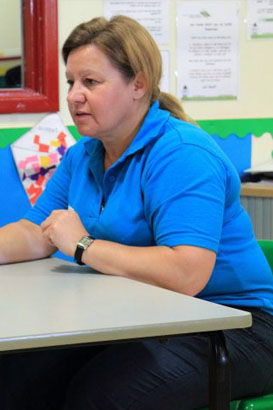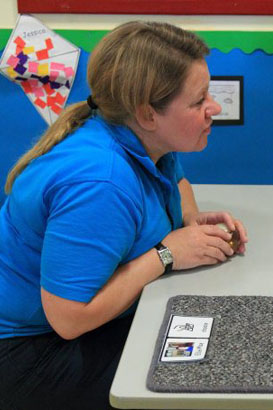There are a range of approaches that can be used easily in the classroom for formative assessment (or assessment for learning) and for summative assessment (or assessment of learning). So, what is the distinction?
Formative Assessment - Assessment for learning takes place during learning, working with the pupil to determine what is being learned and identifying what the 'next steps' should be. It is based on day to day classroom practice, where both teachers and pupils use feedback to improve the learning.
Summative assessment - Assessment of learning takes place after the learning and tells us where pupils have been at given points in time and what has been achieved. It is used mainly to measure performance rather than support learning.

Formative and summative are functions, not types of assessment.
The key difference is in the use made of the evidence and information gathered. Both are forms of teacher assessment and should
make a positive contribution to learning.
A Curriculum for All Learners
A Curriculum for All Learners, p.37
| Formative Assessment | Summative Assessment |
| Teachers focus on individual pupils' ongoing achievements. | Teachers use knowledge gained about pupils from a range of activities over time, to make and record their judgements on overall attainment at transition points, e.g. the end of a key stage. |
| A cycle of activity where evidence is gathered and is interpreted in terms of progress towards short-term goals and priorities for the individual pupil. | Information is interpreted in terms of achievement of certain skills, knowledge and understanding outlined in common criteria (e.g. P-levels, national curriculum levels), enabling information to be compared. |
| Information is used to help pupils take the next steps in their learning. | Information may be used to report to pupils, parents/carers and to make decisions about future options. Information may be fed back into the pupil's learning but this is not usually immediate. |
| Assessment is usually via internal measures such as skills, knowledge, understanding identified in schemes of work and IEP targets and are used to evaluate the progress of individuals/success of strategies/ interventions, etc. | Aggregated results may be used for evaluating the effectiveness of the school, local authority and for monitoring standards of achievement. |

The national curriculum outcomes and level descriptions and the p-scales are designed for summative assessment of learning. They are not a full description of all that a pupil might achieve. They are not designed for day to day use with pupils. Teachers should not allow them to dictate planning and 'narrow' curriculum opportunities.
Schools will use their own more finely tuned criteria for assessment for learning and for identifying individual learning needs. Effective formative assessment is essential in terms of informing the next steps in a pupil's teaching programme. Consider the different ways in which you currently assess pupils during the learning process. What seems to work best for you in your context and why?

Is an appropriate range of strategies used to record individual pupils' learning and progress?
How well do teachers and other adults systematically check pupil's understanding in a lesson? Do they adjust according to the information they observe and react appropriately to improve access, participation and improve learning?
Are additional adults in a class or activity used to the full to observe and record interactions and pupils' responses? Are these observations used effectively to inform planning and the next stage of learning?
